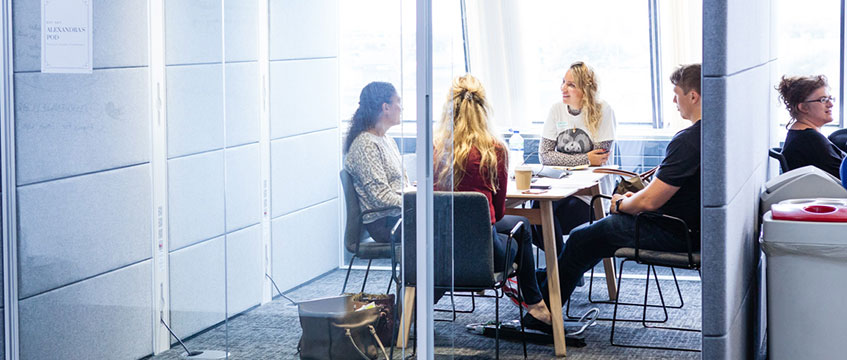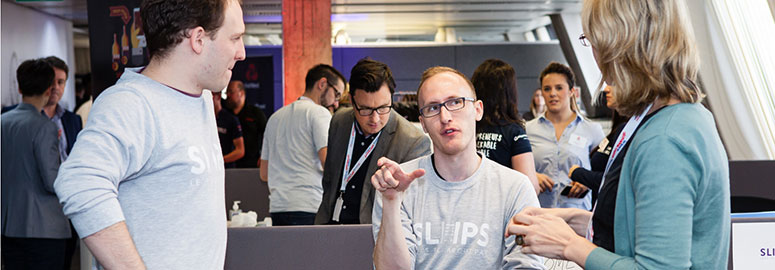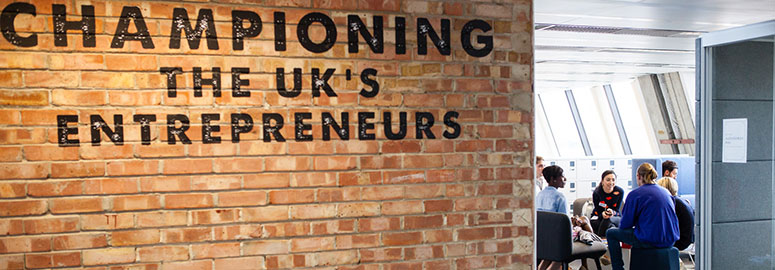US bank Citigroup this week became the latest corporate to announce plans to set up an innovation centre in London.
Citi will initially hire 60 technologists for the centre, which will handle the Europe, Middle East and Africa arm of Citi Ventures, overseeing the bank’s venture capital investments and innovation partnerships with external companies and employees from across Citi’s businesses.
Demand for innovation centre space is growing. In London, there are 81 business accelerators with corporate ownership or sponsorship (58% of the UK total). In Europe, 84% of corporates have opened a dedicated innovation lab and 52% of the top European corporates run an accelerator, according to research by innovation foundation Nesta and innovation advisory firm Mind the Bridge.
Some corporates, such as Citi, use them for their own employees working on specific projects or services; others operate accelerators for start-ups that could create useful products for the corporation, or simply help contribute to a more creative and entrepreneurial environment within the company.
The future of workspace
“We have seen a huge rise in the number of corporate innovation labs and accelerators from a broad range of industries,” says Lee Elliott, head of commercial research at Knight Frank. “It’s office space, but not as we know it.”
There is a range of models emerging. Elliott says: “Some are creating dedicated spaces within their existing occupied portfolio; some are creating separate entities to accelerate innovation and take an equity share in it (a corporate Dragons’ Den, if you like); some are providing space or services to tech-focused start-ups (incubation).”
The growth of innovation space is linked to the nature of innovation today, which tends to be computer based – which means it is more suited to office environments, Elliott adds.
Innovation centres commonly feature informal collaborative workspace, meeting rooms and project areas. At EY’s innovation centre, Wavespace, in Shoreditch, EC2, you are unlikely to see anyone wearing a suit and tie. Harry Gaskell, UK chief innovation officer at EY, says: “Our mainstream offices are all relatively conventional, whereas this looks more like a Shoreditch design studio… We are doing a strategic review of all of our space and whether we should be expanding space that works like that.
“If you want people to follow processes and do conventional office work, then there’s no need to have that shared working space environment. If you want people to come up with new ideas, then you do want them to be in a more open environment.”
EY also has a cross-service line innovation initiative, EYX Studio, which it operates at shared workspace location Second Home, in Shoreditch.
“Second Home is a totally different environment – even from the Wavespace,” Gaskell says. “This feels completely different and what we have found with our own people and our clients is if you hold two meetings, one at 6 More London Place [EY’s corporate headquarters] and one at EYX in Shoreditch, they will have very different conversations. The environment changes the way people think. Clients are much more willing to think creatively and abandon constraints.”
Accelerator model
RBS has chosen an alternative model, where it uses vacant space within its existing UK portfolio to install start-up accelerators used by external SMEs. After seeing the positive impact on its employees of bringing an entrepreneurs’ accelerator programme, Spark, into the bank’s Edinburgh office in 2012, RBS decided to launch its own accelerator programme in 2014.
“Bankers were able to have conversations with the entrepreneurs at an early stage and use their expertise and experience to help them grow,” says Darren Pirie, head of entrepreneur development at RBS. “The pay-off was that we were seeing our people respond really well, leaving with a spring in their step.”
Mapping the UK’s best places for growing business against where the bank had available office space, it identified the locations for 12 hubs around the country. Each of the hubs has desks available, superfast broadband pumped in, a kitchen area, bookable meeting rooms and events space. Accelerator members can be start-ups from any sector, they can use the space for free and they do not have to bank with RBS. For RBS, the benefits of the programme include promoting an entrepreneurial culture within the wider bank, showing the public how it supports UK business, and supporting potential new fintech solutions to improve its banking operations.
The communication and creativity-led spaces are making corporates rethink their wider office space.
Pirie says elements of the first hub’s office design in Birmingham have already appeared elsewhere in the estate and it would be “right to assume” more of the bank’s workspace will start to emulate that kind of environment. Innovation centres are a response to repeated threats that big business needs to “change how it operates – or die”.
Bringing entrepreneurial practices into traditional workspace is one solution that is making corporates rethink their entire office space.
Innovation centres in London are being set up by a broad range of sectors:
- Telecoms groups Telefonica has a tech start-up accelerator called Wayra at 20 Air Street, W1.
- Drinks group Diageo supports Distill Ventures, a support centre for entrepreneurs who want to create the global drinks brands of the future, at 19 Fitzroy Street, W1.
- Retailer John Lewis operates retail tech accelerator, JLAB, from its head office at 171 Victoria Street, SW1.
- Microsoft Ventures, a venture capital subsidiary of Microsoft founded in 2016 in San Francisco, has a London centre at 70 Wilson Street, EC2.
- Jaguar Land Rover owns InMotion Ventures, a centre that invests in and supports start-ups in the mobility, transportation and travel sector.
To send feedback, e-mail Louisa.Clarence-Smith@egi.co.uk or tweet @LouisaClarence or @estatesgazette













